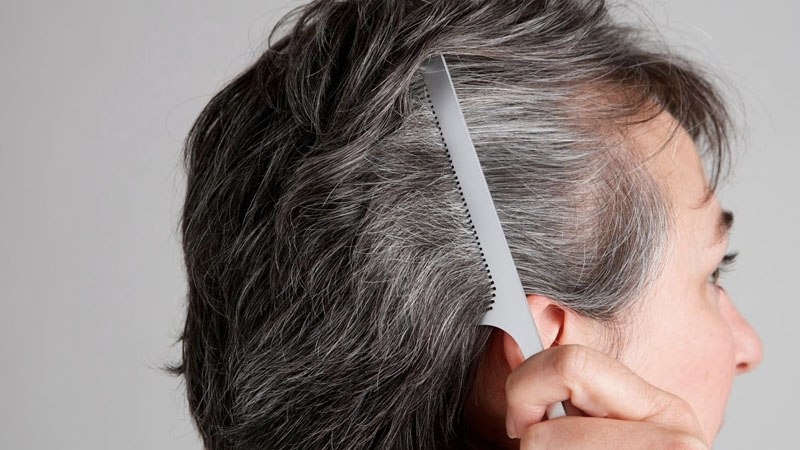Gray hair is a natural part of the aging process, typically appearing as we enter our middle ages. However, some people experience premature graying, even before they turn 30. To prevent this, it’s essential to adopt these basic healthy habits:
Reduce Stress
Prolonged exposure to stress and pressure can lead to premature graying. This is because when we’re stressed, our bodies stimulate the sympathetic nervous system to release noradrenaline, which can cause melanin-producing cells to move away from the hair follicle, resulting in hair losing its pigment.

Prolonged stress and pressure can lead to premature graying.
It’s important to allocate time for relaxation and rest in the evenings, as this can help reduce stress levels and improve sleep quality.
Minimize Exposure to Chemicals
Choose hair dyes that are less damaging and less likely to cause allergies. Alternatively, you can use herbal remedies to darken hair and promote hair health, such as Chinese foxglove, black beans, black sesame, or barley grass. When going outdoors, don’t forget to wear a hat or a cap to protect your hair from the sun and other environmental factors.
Adopt a Healthier Lifestyle and Diet
Prevent premature graying by avoiding harmful habits such as staying up late, smoking, and regularly consuming alcohol and stimulants. Instead, focus on incorporating these nutritious foods into your diet:
– Salmon: Rich in omega-3 and protein, salmon provides essential nutrients for healthy hair and skin.

Adopting healthier habits can prevent premature graying.
– Oysters: Oysters help prevent anemia and improve cholesterol levels, ensuring your hair has the protein it needs to stay strong and healthy.
– Eggs: Eggs are a great source of biotin, which is crucial for hair health.
– Legumes: Lentils and chickpeas are packed with vitamin B9.
– Goji Berries: Goji berries are known to prevent hair from turning gray and improve overall health, maintaining a youthful appearance.
– Seaweed: Seaweed is naturally rich in collagen, which strengthens hair.
Additionally, consider supplementing with vitamin B12, selenium, copper, zinc, biotin, and collagen, but always consult a doctor or pharmacist beforehand to ensure safety and effectiveness.






























